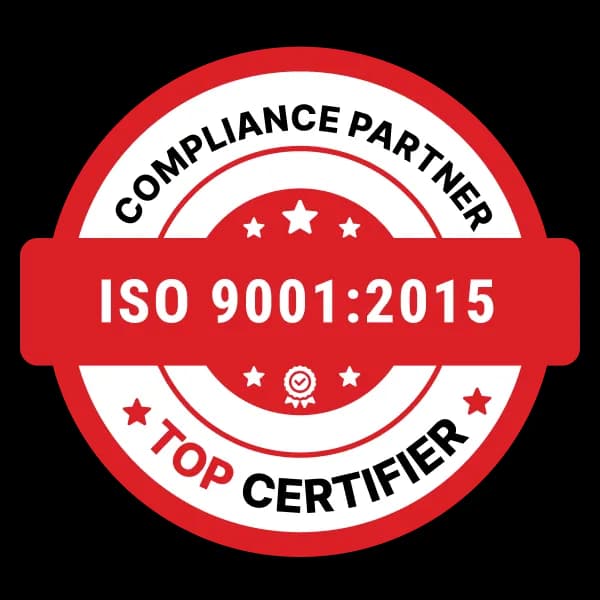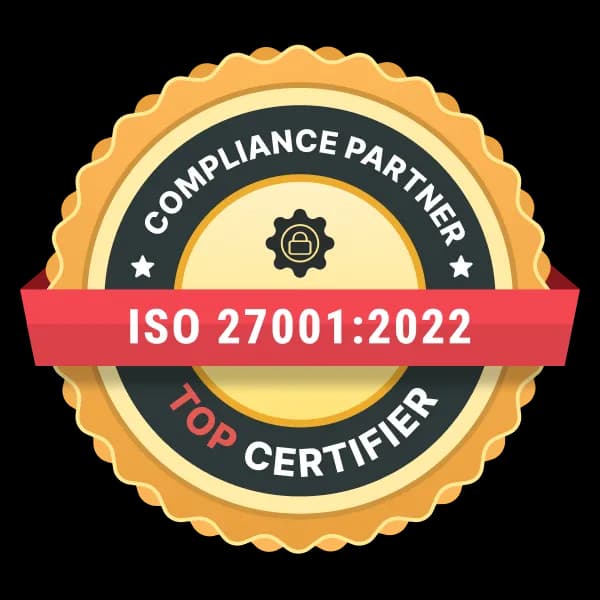Healthcare Software Development for Smarter Patient Care
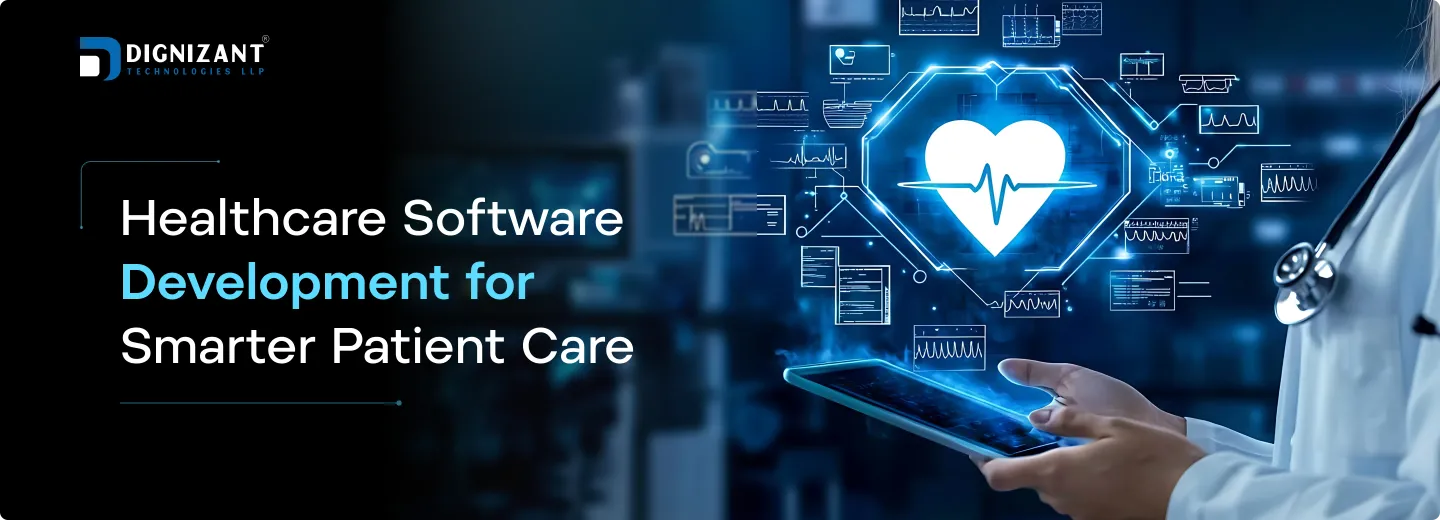
Contributor
Femil Savaliya
Uploaded
25 July, 2025
Read Time
6 Minutes
Technology has been at the center of the biggest disruptions in healthcare since the beginning of the last decade. With healthcare systems focused on providing care that is more personalized, accessible and cost effective, Healthcare Software Development has become one of the key factors driving this transformation. Whether it be a hospital in a major city, or a clinic in a far flung village, software is giving providers opportunities to improve care without burning through resources.
Let’s take a look at how healthcare software is driving intelligent patient care, the kinds of solutions driving this evolution, and what the future looks like for this critical mix of medicine and technology.
The Immediate Need for Healthcare Digital Transformation
Healthcare is facing unprecedented challenges. An increasingly growing chronic disease, an overwhelmed health care workforce and increasing patient expectations adds up to some hard times for the folks who deliver health care.
Patients are no longer as passive consumers of medical treatment as they once were. They want fast service, easy access to their medical records, remote consultations and personalized care. In the meanwhile, hospitals must adhere to stringent rules to control expenses.
The solution? Intelligent, scalable, and secure hospital software and applications that enable larger health systems to do more with less, without cutting corners.
What Is Healthcare Software Development?
Healthcare software development is the practice of creating, designing, and deploying digital tools custom made for healthcare organizations, medical professionals and patients. They include tools from electronic health records to AI-based diagnostic tools, mobile health apps, hospital management applications and beyond.
It’s because, in contrast to the general software, healthcare applications have to comply with stringent requirements on both usability, security and compliance (like HIPAA or GDPR). But in addition to compliance, they must also be practical in the real world for doctors and nurses and patients. The goal is to make care smarter, faster and more efficient.
Types of Healthcare Software That Improve Patient Outcomes
1. Electronic Health Records (EHRs)
EHRs serve as the infrastructure of digital health. The systems consolidate all of a patient’s medical history lab results and medications, allergies and treatment plans under one roof. This means patient information is available allowing you to reach it quicker, not duplicate tests, and make informed clinical decisions.
2. Hospital Management Software (HMS)
Hospital management is more like operating a complex machine. HMS is built to automate nearly everything, from staffing schedules to patient check-in and billing, and even reporting and supply chain management. The use of hospital software can assist management to recognize and solve bottlenecks and better serve their patients.
3. Telemedicine Platforms
Telemedicine allows patients and doctors to interact virtually through video chats, texting or an app. It’s particularly valuable for patients in rural areas or who have mobility issues. Such platforms also help providers see more patients without overstressing themselves.
4. Medical Imaging and Diagnostic Tools
Meanwhile, advanced medical technology, driven by AI and machine learning, can now review X-rays, CT scans and MRIs more quickly and more accurately than ever. This improves treatment planning, reduces the error margin, and expedites diagnosis.
5. Mobile Health (mHealth) Apps
These apps give patients the power to manage their health. From monitoring blood pressure and glucose readings to med management and reminders, from mobile apps that build more informed and engaged patients.
6. Clinical Decision Support Systems (CDSS)
CDSS systems support physicians by furnishing evidence based suggestions at the time of diagnosis or treatment. For example, a CDSS could warn clinicians of potentially dangerous drug combinations, or make recommendations for tests based on a patient’s symptoms and history.
Key Benefits of Smart Healthcare Software
Smarter and Faster Diagnoses
Artificial intelligence aided diagnostics and real time patient information that can bring about detection of disease at an earlier stage and early treatment. This saves lives, especially for time dependent conditions, like strokes or heart attacks.
Better Patient Engagement
Apps that let patients see their records, book appointments or chat with doctors are an essential tool in winning people’s trust in the system and making them partners in their own care.
Improved Communication Among Care Teams
The same current data on patients are available in all departments from radiology to pharmacy to general wards. As a result, the therapeutic process becomes more cohesive and efficient.
Operational Efficiency
Workflows that are automated, digital forms of contraception and schedule guessing all reduce paperwork, speed up billing and minimize human error. That leaves providers more time to care for patients.
Data Driven Insights
In hospital powers researchers can find the trends, follow the patient outcomes and even predict potential health risks down the retirement road. This makes for early intervention measures that are also preventative in nature.
Real World Examples of Healthcare Software in Action
- Remote Monitoring for Chronic Patients: Wearable device and app linking enables doctors to monitor patient heart rate, blood pressure and oxygen without seeing the patient in person. Such tools prevent patients from bouncing back into the hospital, and can even help them live healthier at home.
- AI in Radiology: AI in radiology can go through thousands of radiology images and point out areas of concern, cutting in half the time taken to make a diagnosis.
- Patient Portals: Hospitals that provide patient portals have higher satisfaction. Patients find it empowering to be able to message their care team at any time, request prescriptions, and view their test results.
Challenges in Healthcare Software Development
Designing and building healthcare software the pros of healthcare software are clear, but there are challenges in developing it:
Compliance and Regulation
Regulatory bodies like the HIPAA (for the US) and GDPR (for Europe) have driven the industry to meet stringent compliance standards when it comes to information storage and management. It doesn’t take much to violate something that can have severe legal and trust consequences.
Data Security and Privacy
Healthcare information is one of the information cybercriminals covet the most. Your software needs to be a suite of strong encryption and secure authentication in place, running round the clock to avoid any breakdown.
Integration with Legacy Systems
Most hospitals are still stuck with aging IT systems. New software must also be able to work well with old historical solutions, which is not always easy technically and logistically.
User Adoption
Doctors and nurses are already oversubscribed. If a system is cumbersome, or poorly designed, no matter how powerful it is, it may be unused.
Cost and Resource Constraints
Software development can be expensive, and costly to maintain, especially for custom software, for small and rural hospitals and health systems.
Future Trends in Healthcare Software Development
AI-Powered Personalization
AI is advancing from diagnosing to planning personal care. Before long, programs will be capable of personalizing diet plans, drug regimens and lifestyle advice for each and every patient.
Cloud-Based Systems
The ability to scale, update easily, and remotely access, all in the cloud. Hospitals can cut infrastructure costs while improving performance.
Mobile First Experiences
With more patients now tracking their health via smartphone, the role of mobile apps in care delivery will only grow from making appointments to chat consultations.
Interoperability
Health care software’s future is in systems that play well together. Software will have to exchange data among departments and facilities, and even across borders, to truly connect care.
Predictive Analytics
Using patterns from large datasets, predictive tools can enable healthcare teams to keep maladies at bay before they happen and change care from reactive to proactive.
Conclusion
Technology is never going to replace the kindness and wisdom of a human caregiver but it may support, enhance and allow her or he to do their jobs better. At its best, Healthcare Software Development isn’t merely optimizing hospitals but humanity.
Created with empathy and intentionality, hospital software should make it easier for providers to spend less time doing paperwork and more time with patients. Medical technology is not about cold machines, it is about giving people better tools for healing, connecting and thriving.
Now, as the future unfolds, one thing is certain smarter software equals smarter care. And it makes for healthier patients, more satisfied health workers, and more robust health systems for all.
Latest Articles
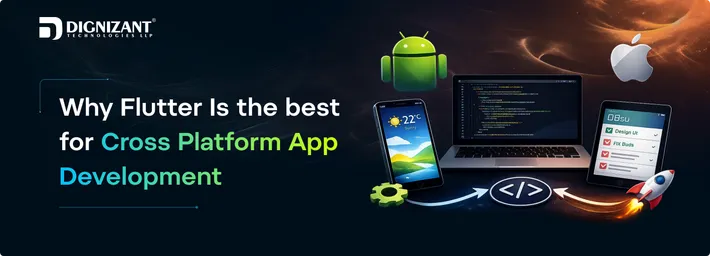
Explore how Flutter powers scalable, high performance cross platform apps with expressive UI, reduced costs, and faster time to market.

React vs Vue Comparison guide covering React JS vs Vue JS features, performance, learning curve, and use cases to choose the right framework in 2026.
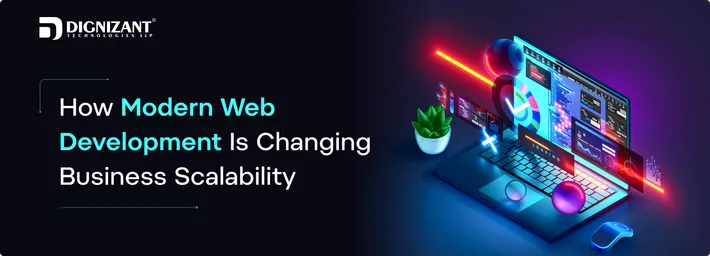
Understand how modern web development drives scalable growth by improving speed, flexibility, security, and long-term digital performance.
FAQs
Ready to Take Your Business to the Next Level?
Unlock new opportunities with expert solutions designed to elevate your brand. From strategy to execution, we empower your business with the tools, technology and talent it needs to thrive in today’s digital world.
